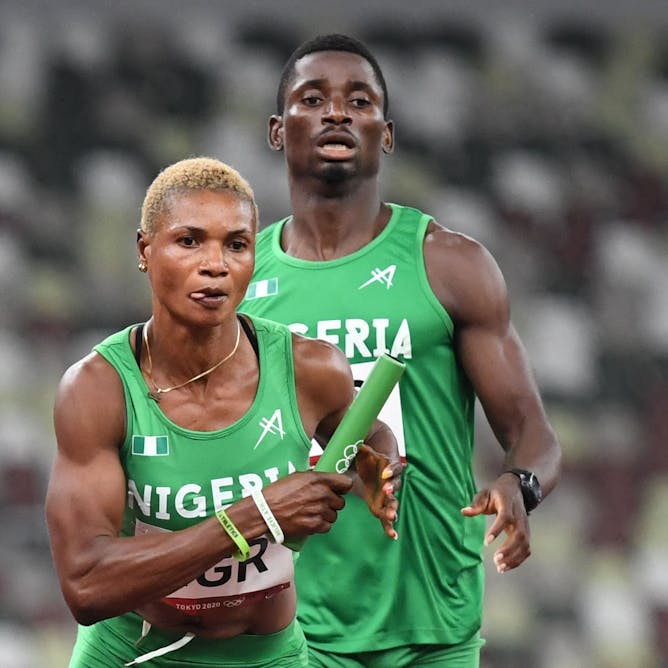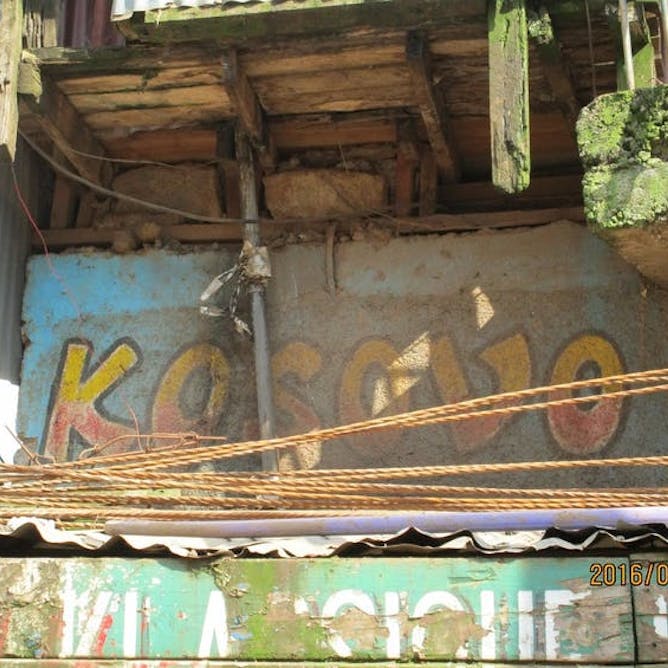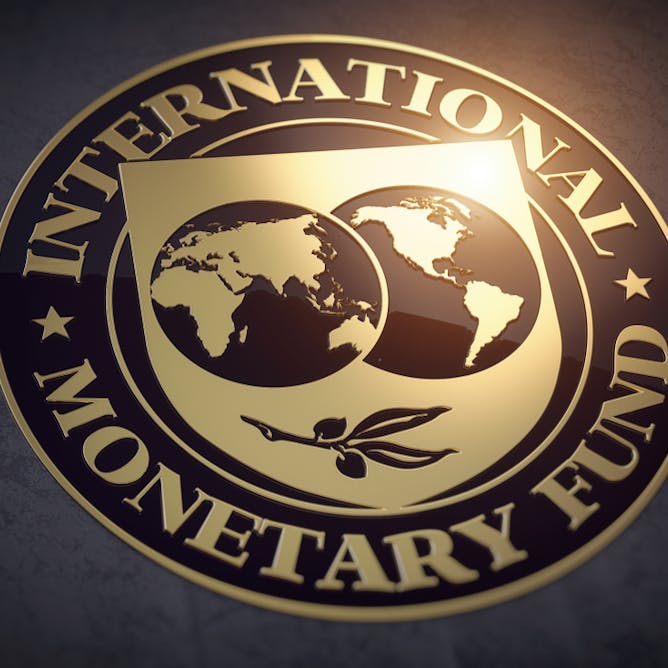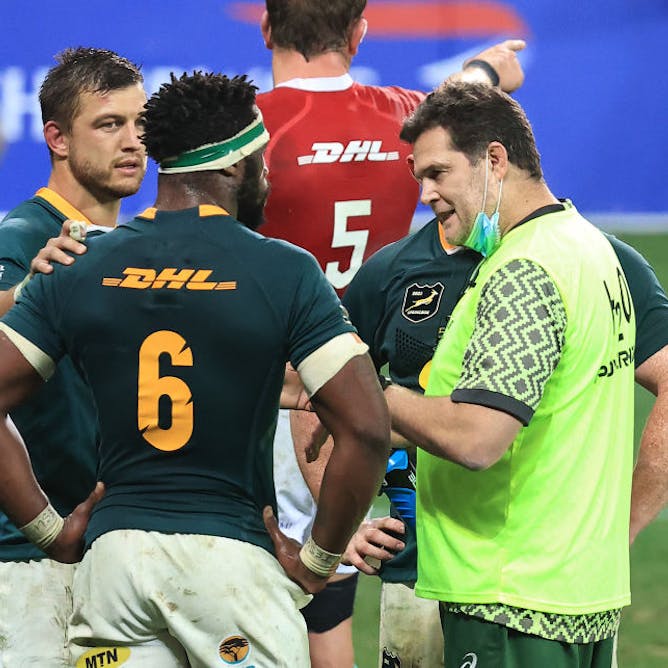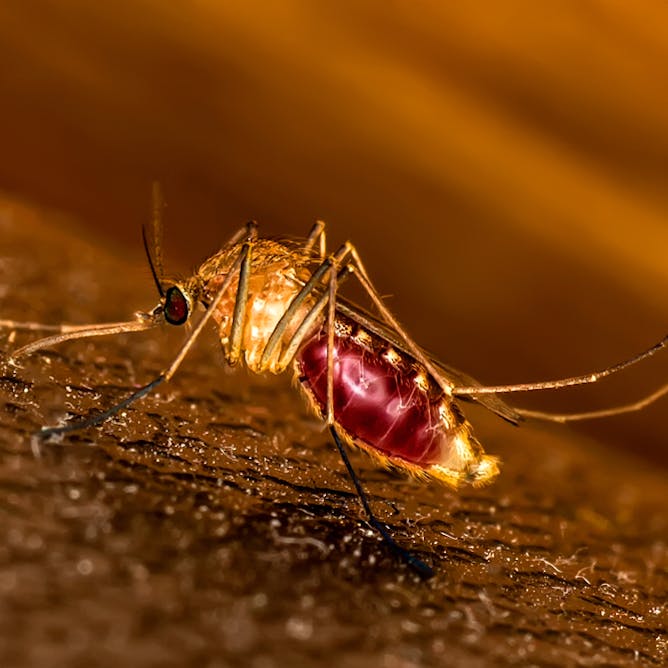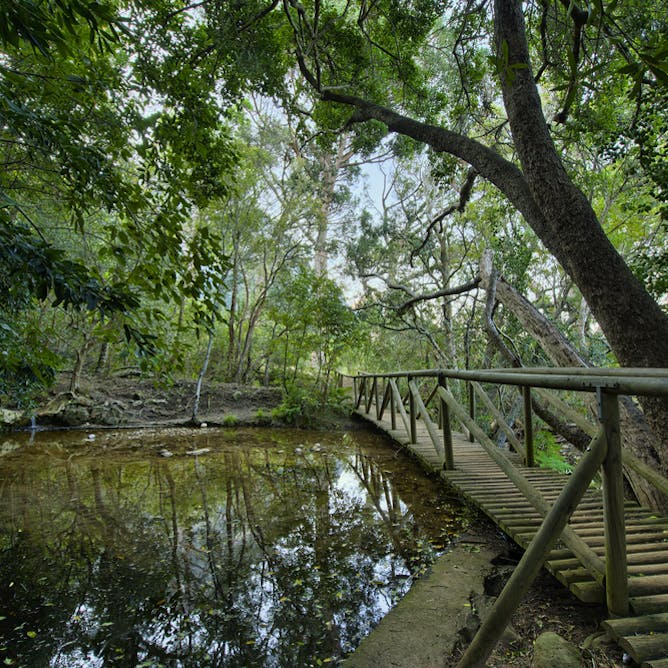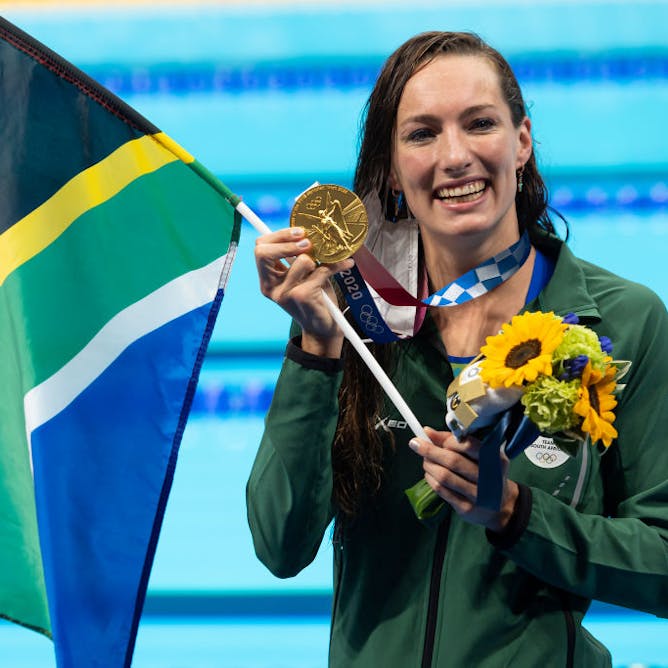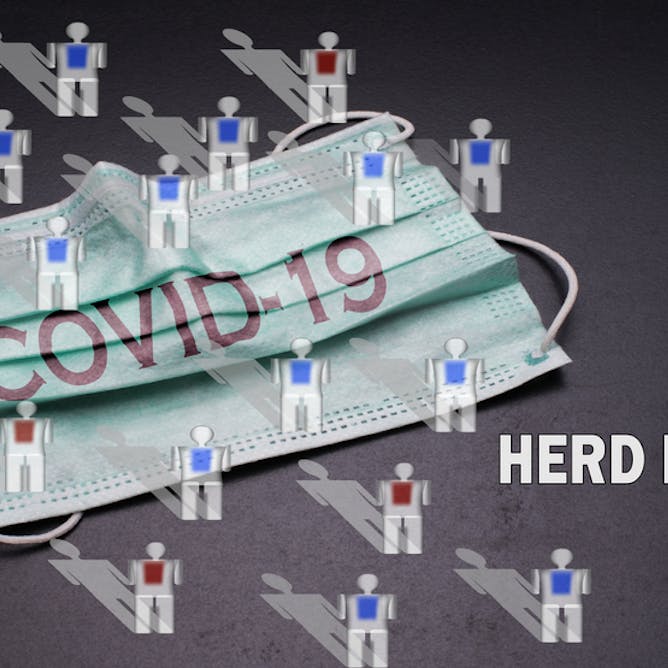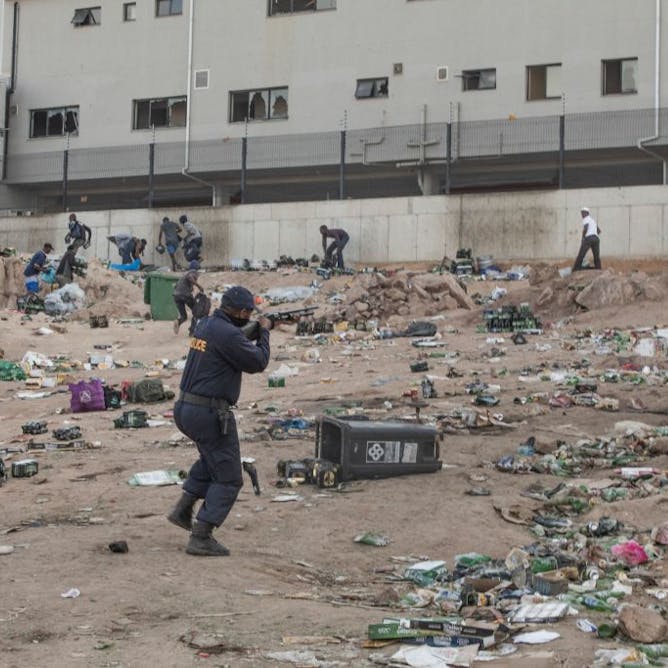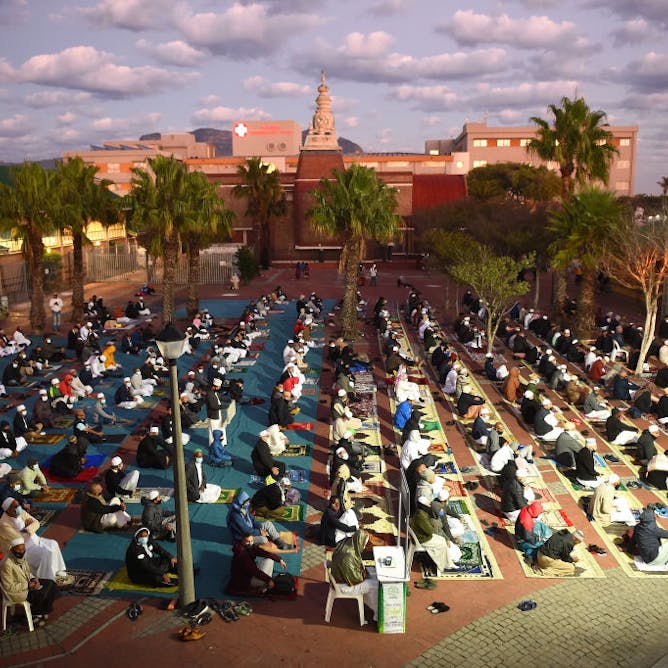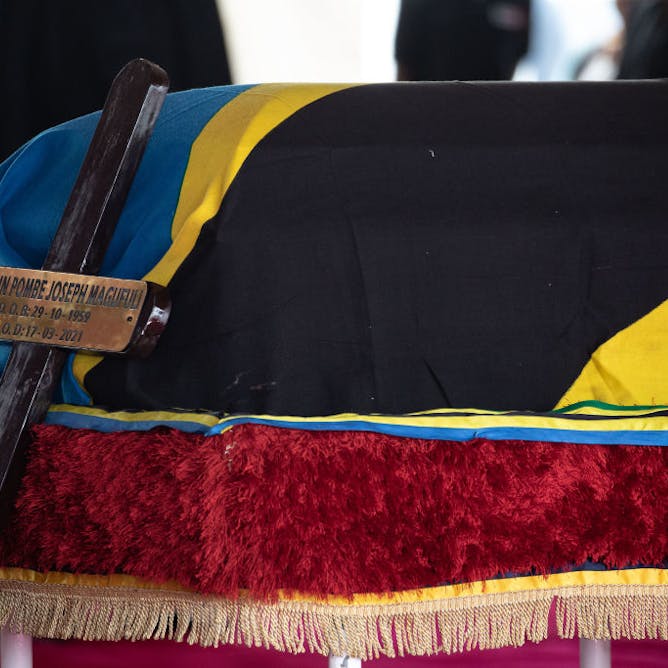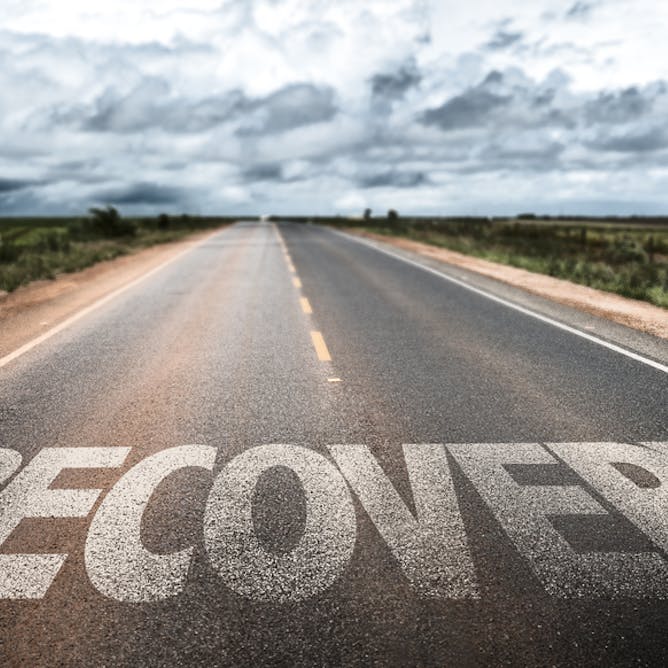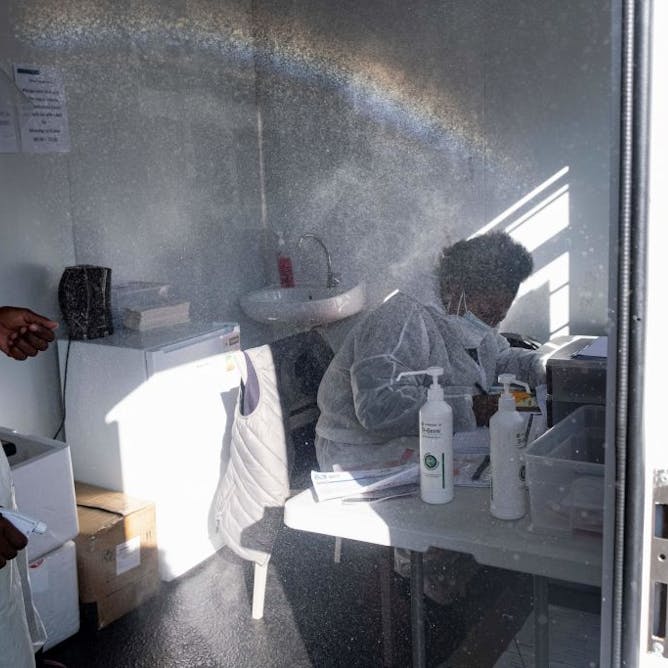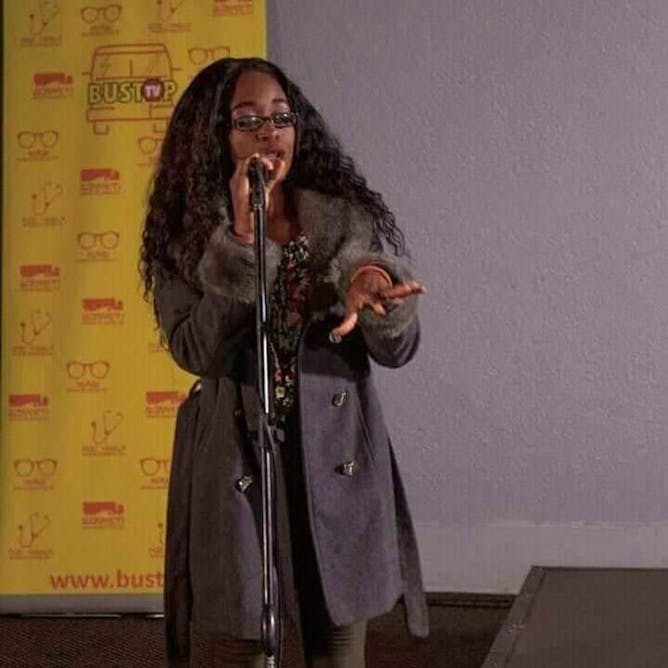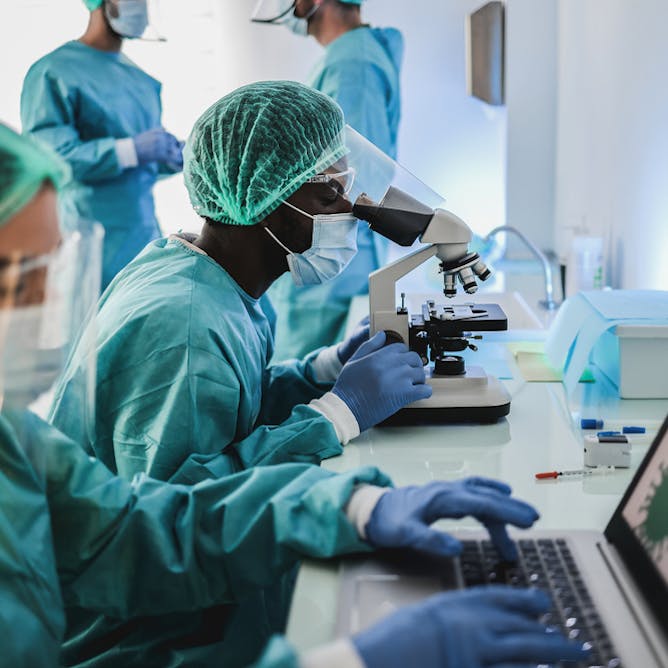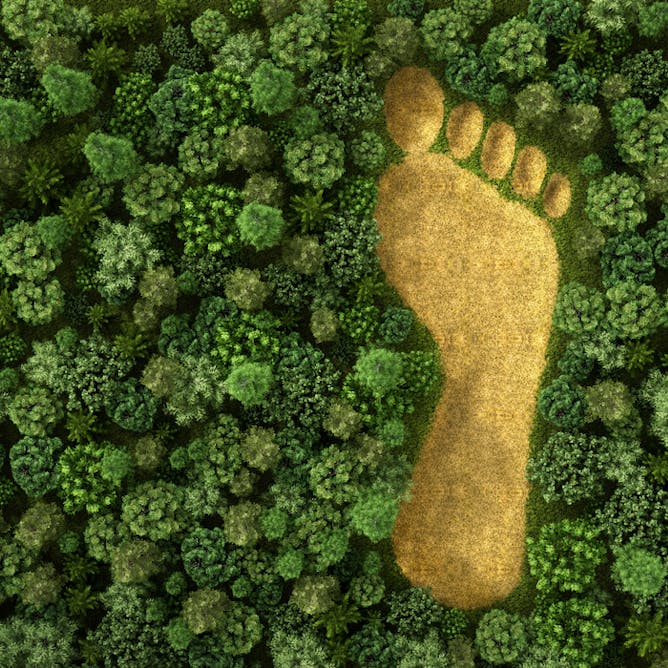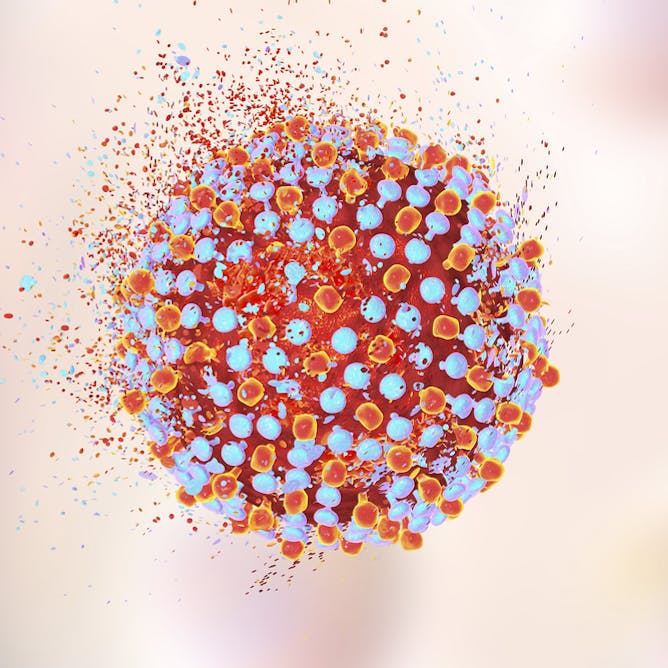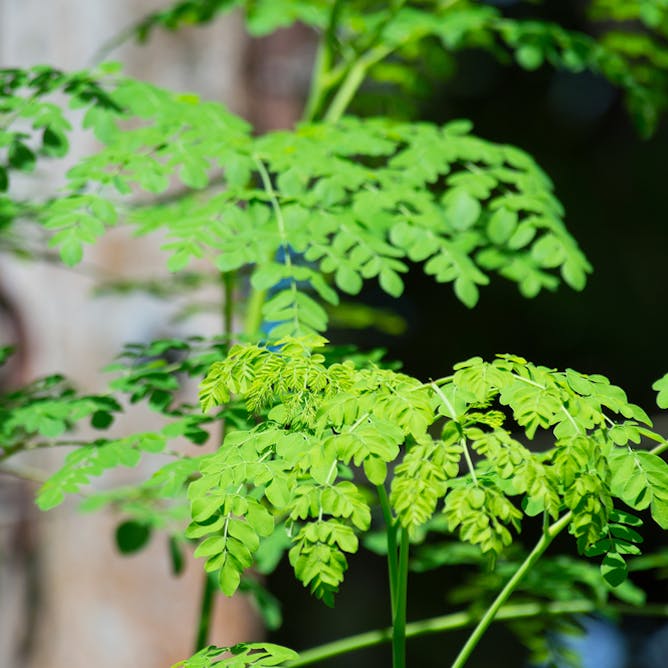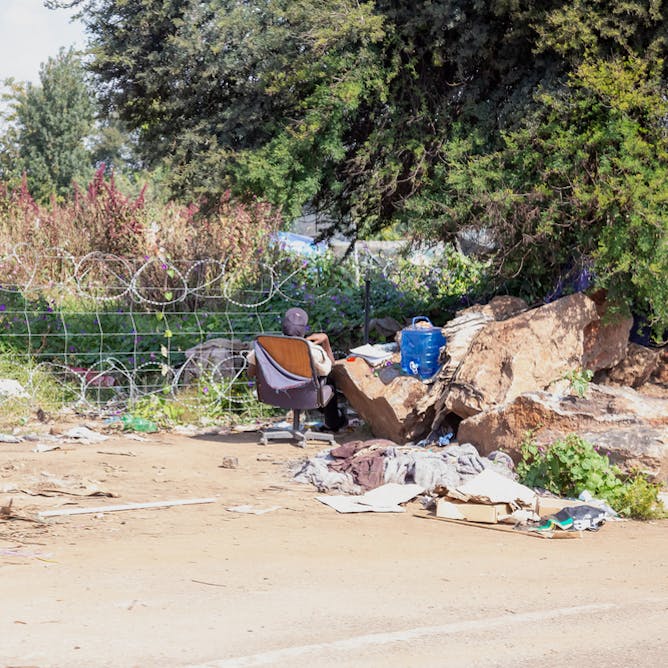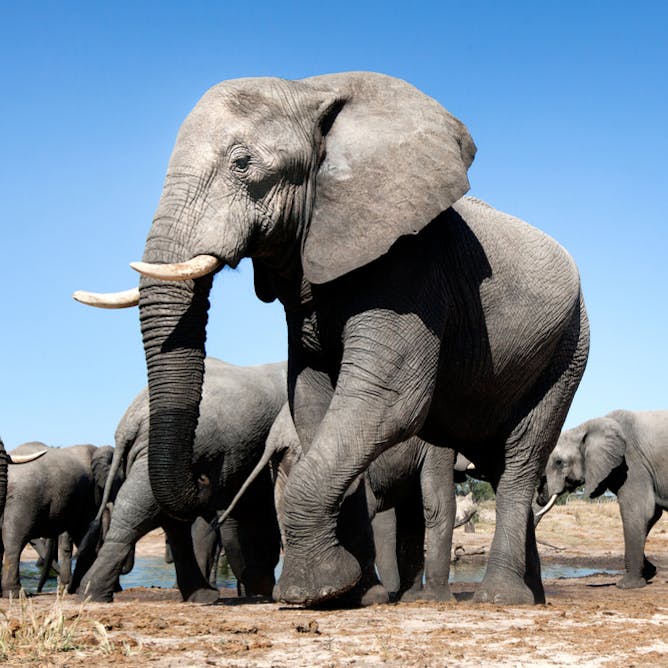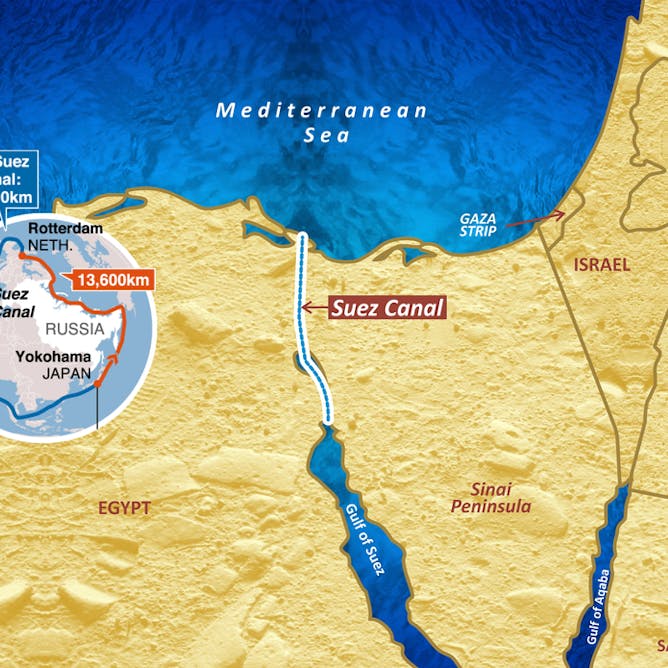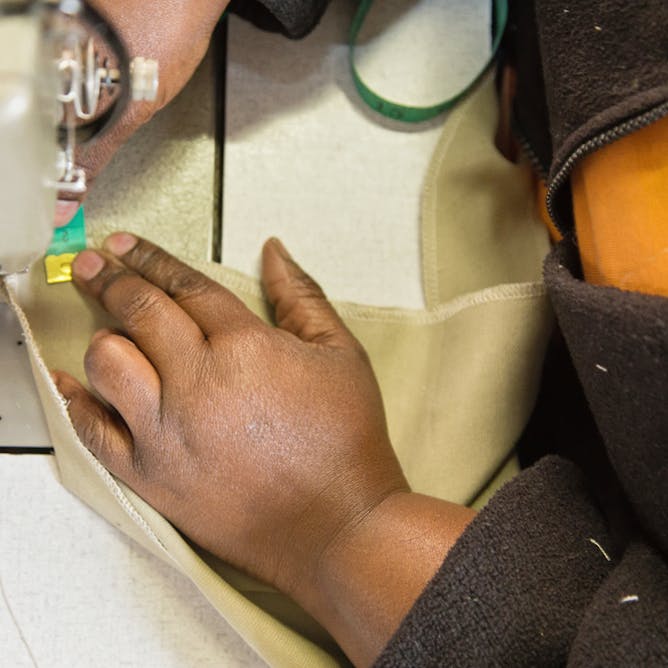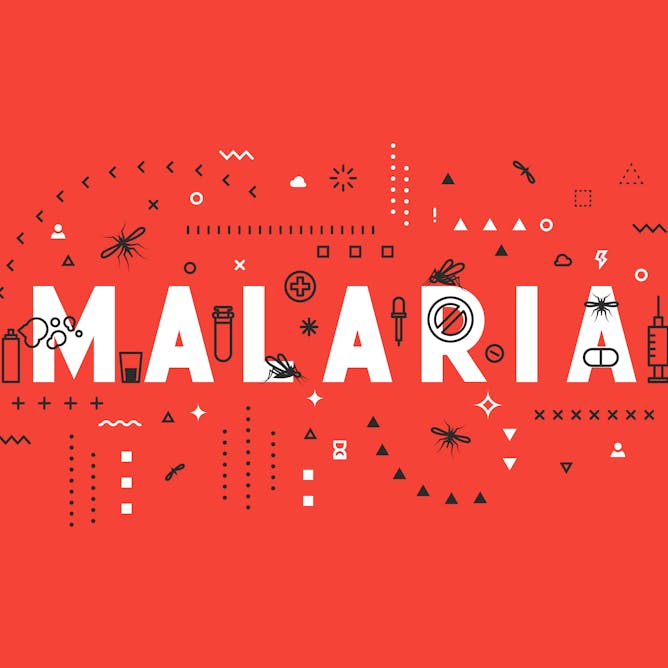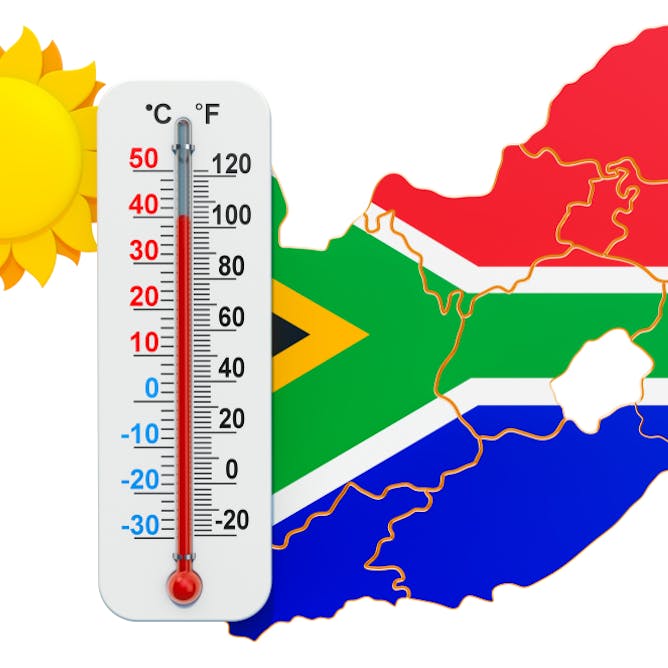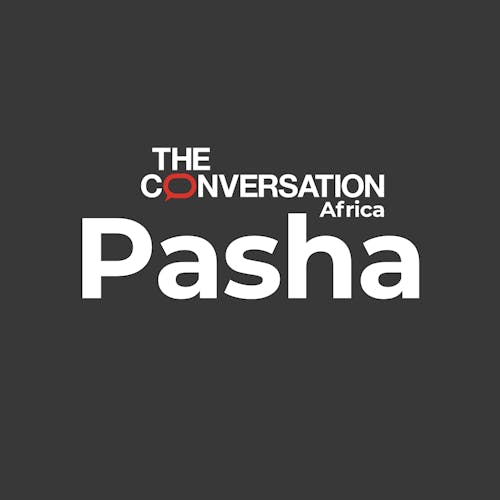
Latest Episodes
Pasha 125: Nigeria can regain its lost athletics glory. Here's how
Nigeria used to be a great force in global athletics but that has changed. The country's fortunes have plummeted in track and field events. The downward trend continued in the recently concluded Tokyo Olympics, where Nigeria won only two medals: bronze in long jump and silver in wrestling. Oladele Oladipo, a professor of sports and exercise physiology at the University of Ibadan, offers insight into…
1 Host: Isiaka Oladele Oladipo
Pasha 124: How Nairobi's informal settlements got their names
Nairobi, Kenya's capital city, started as a railway depot in 1899 and developed into a colonial administration centre, then into a commercial and regional hub. Informal settlements in the city grew in parallel, arising from colonial policies that excluded local people from permanent residence, and driven by demand for housing. The names of these informal settlements -- and the names of places within…
1 Host: Melissa Wanjiru-Mwita
Pasha 123: Conversations with the Editor: The IMF's special drawing rights
The International Monetary Fund (IMF) is to inject $650 billion in Special Drawing Rights into the global economy. Because of the way the quotas for member states work, about 60% of these funds will go to rich countries that do not need them. African countries will receive $33.6 billion. Most of this will go to the five largest economies on the continent – South Africa, Nigeria, Algeria, Morocco and…
1 Host: Danny Bradlow
Pasha 122: How video analysis benefits rugby
A recent rugby series between South Africa and the British and Irish Lions, a tour that takes place every 12 years, was the subject of controversy. One of the reasons the tour made headlines was that the South African rugby director, Rassie Erasmus, released a video in which he challenged decisions made by the referee that went against his team. (South Africa won the series by 2-1.) The video is quite…
1 Host: Sharief Hendricks
Pasha 121: Why we need mosquitoes
The dreaded mosquito is an insect with a bad reputation. They bite, keep you up at night and spread deadly diseases like dengue and malaria. There are many calls for their eradication. But they are a diverse group. Only a small fraction of the 3,000 species of mosquitoes feed on humans. An even smaller fraction of those transmit diseases. They are an important part of many ecosystems. Some feed on…
1 Host: Jeremy Herren
Pasha 120: Botanical gardens: why we need them and how they can also pose a risk
The team behind our podcast, Pasha, has started a series called "Why We Need" and this first episode is about why we need botanical gardens. Botanical gardens are dedicated to the collection, cultivation, preservation and display of plants. Around the world, they contain 30%-40% of the known plant species. Not only do they maintain documented collections of plants, these institutions carry out research…
2 Hosts: Mesfin Wondafrash Gossa and Trudy Paap
Pasha 119: Talking about Africa and the Olympics
It's safe to say that the 2020 Olympic Games held in Tokyo this year was an unconventional event. The impact the pandemic had on the athletes has been complex and felt differently across countries and individuals. So how did African athletes fare in these difficult conditions? Overall, not too well on the medals chart. There were some impressive performances but the Olympics did not yield many moments…
1 Host: Kamilla Swart
Pasha 118: Herd immunity isn't achievable. We need to learn to live with COVID-19
In the first year of the COVID-19 pandemic the phrase "herd immunity" was bandied about a lot by heads of state as well as health officials. This ideal end state was described as the moment when the virus had been beaten, and everyone could return to a normal life. But a great deal has changed in the intervening months. Firstly, the virus has mutated in ways that make it spread more quickly, and in…
1 Host: Shabir A. Madhi
Pasha 117: What drove South Africa's recent violence and looting and what to do about it
After former president Jacob Zuma was recently arrested for contempt of court, South Africa went into disarray. Widespread looting, vandalism and violence broke out. Two provinces -- Gauteng, the country's economic hub, and KwaZulu-Natal, on the east coast -- bore the brunt of this. What was initially premised on Zuma's arrest transpired into something much more coordinated, controlled and dangerous…
1 Host: David Everatt
Pasha 116: Why events like Eid celebrations can be superspreaders
One of the elements that contribute to a rise in COVID-19 infections is gatherings. Ramadan (the month when Muslims fast from sunrise to sunset) and Eid (the celebration after the month) are times when gatherings appear to have contributed to the deaths of many in the Muslim community. Research has found that Muslims make up around 2% of South Africa’s population, yet account for 5% of the total COVID…
1 Host: Salim Parker
Pasha 115: Five ideas about why so many top African officials have died of COVID-19
Seventeen African leaders -- national ministers and heads of state -- had lost their lives to COVID-19 by February 2021. The continent is made up of 54 countries, so there's a high number of leaders, but the number of deaths is out of proportion compared with other continents (where the global total is five). In some cases, the deaths of leaders meant a shift in policy. This was notable in Tanzania…
1 Host: Jean-Benoit Falisse
Pasha 114: Lessons from COVID-19 for other global crises
Disasters like the COVID-19 pandemic provide the world with a learning opportunity. It is important that global events like this are used to invoke change for a better world. The pandemic was coming; there have been near misses in this century alone, like SARS, avian influenza and Ebola. But the world hasn't learnt from them. Governments and citizens must take up the challenge to make real change for…
1 Host: Ian Goldin
Pasha 113: COVID-19, the Delta variant and South Africa's vaccination problems
The Delta variant of SARS-COV-2 -- the virus that causes COVID-19 -- is spreading across South Africa, sparking a strong resurgence of infections. The president has placed the country under stricter regulations in an attempt to curb the spread of the virus. Gauteng province, the country’s economic hub, where 25% of the population live, is the epicentre. It's likely many more people will be hospitalised…
1 Host: Shabir A. Madhi
Pasha 112: The struggles of women doing stand-up in Zimbabwe
Being a comedian in Zimbabwe is no easy profession, particularly if you're a woman. The problems women face range from violence -- for example, Samantha Kureya, known on stage as Gonyeti, was abducted and tortured by masked gunmen -- through to attitudes that frown on women taking to the stage. But Zimbabwe's women stand-up comedians are fighting the patriarchy. Munya Guramatunhu and Sharon Chideu…
1 Host: Amanda Källstig
Pasha 111: Why it's important to improve Africa's research output
Peacebuilding Research output across the African continent is really low. Many institutions that produce research are severely underdeveloped and underfunded. Many also have a major focus on undergraduate degrees and enrolments. This drive for an undergraduate degree has means that postgraduate education and research is falling short. Improving research on the continent requires a massive shift. But…
1 Host: Sharon Fonn
Pasha 110: Johannesburg's romantic comedy revolution reimagines the city
The African romantic comedy genre is part of a trend in the cinema of the global South, projecting images of the "global city". In South Africa, most black romcoms are set in Johannesburg and they too portray it as a glamorous setting for affluent lifestyles and aspirations. But in their storylines and images the films also remind audiences of the city’s real social conflicts and socioeconomic inequalities…
1 Host: Pier Paolo Frassinelli
Pasha 109: Ecology research has a huge gap: the work of women and the global South
Ecology is the study of the relationships between living organisms, including humans, and the environment around them. It is an important branch of study, exploring how animals, plants, the land, climate and humans are interconnected. But a study of 13 leading journals in ecology over 75 years has shown that in this field, women researchers are seriously under-represented. So are countries in the global…
1 Host: Bea Maas
Pasha 108: Some good news in the fight against hepatitis C in Africa
Globally, there are around 71 million people with hepatitis C. In Africa, more than 10 million people are infected with the virus. The new oral therapies that have been developed to treat hepatitis C are much more effective and easier to take than the previous injections, and have fewer side effects. In high-income countries, these drugs are known to work well. But the number of strains of the virus…
2 Hosts: Elihu Aranday-Cortes and John McLauchlan
Pasha 107: Exploring the use of the moringa plant in South Africa
Moringa is a plant that offers many benefits. It is full of vitamins and other nutrients. It is also believed to have other pharmacological properties. Aside from food, parts of the moringa can be used for firewood, fencing, water purification and fertiliser. Moringa is also a drought tolerant and resistant crop. Cultivation has been rising in South Africa since it was introduced in 2006, but it has…
1 Host: Chuene Victor Mashamaite
Pasha 106: COVID-19 is increasing inequality in South Africa
Unemployment, poverty and hunger were issues South Africa knew all too well even before the COVID-19 pandemic. The pandemic has made them worse. Job losses have increased and unemployment has not been offset by a massive government economic stimulus package and wage compensation scheme. But the COVID-19 impact has been unequal for the most part. The worst affected sectors of the economy, like tourism…
2 Hosts: Ivan Turok and Justin Visagie
Pasha 105: Two academics weigh in on Botswana allowing elephant hunting
Botswana recently offered the rights to shoot around 300 elephants. There have been mixed feelings about this decision. Some say licensed hunting is ecologically necessary. They also say rural communities need revenue from hunting and are at risk of human-wildlife conflict. Others have criticised it heavily, disputing the claim that hunting is a solution to various problems and pointing to its negative…
2 Hosts: Peet Van Der Merwe and Ross Harvey
Pasha 104: The fascinating history of the Suez Canal
The Suez Canal was in the spotlight recently when the container vessel Ever Given became wedged diagonally across it, causing a massive backlog in shipping traffic. The idea of a canal connecting the Red Sea and the Mediterranean was a dream for many throughout history. The Egyptian Pharoahs, Persians, Romans and Ottomans all saw its potential benefits. The canal offers the shortest sea route between…
1 Host: Lucia Carminati
Pasha 103: Insights from female breadwinners in South Africa
In South Africa, about 6 million households have women as the breadwinners -- about 38% of all homes. Many of these women don't choose to be the primary financial provider but are forced into it by circumstances. And they are over-represented in the poorest paying and most unregulated sectors of the economy, such as service industries, domestic work and informal work. They also earn less than their…
1 Host: Bianca Parry
Pasha 102: Talking about malaria risk zones and climate change in South Africa
Malaria kills over 400,000 people a year across the world. Africa carries the highest burden, with 90% of these deaths occurring on the continent. In South Africa, close to 5 million people are at risk of contracting the disease. Malaria is mainly transmitted along the northern border areas of the country. Mapping malaria risk zones is therefore key to managing the spread. But changing weather patterns…
1 Host: Jennifer Fitchett
Pasha 101: Two researchers unpack extreme temperatures in South Africa
Extreme heat and extreme cold can both have an impact on human health. With a changing climate, these events are set to occur more often. They are also becoming increasingly difficult to predict. Extreme heat stress can result in heatstroke and can affect people's cardiovascular health. There are significant health concerns related to extreme heat events, particularly when people aren't prepared for…
2 Hosts: Adriaan Van Der Walt and Jennifer Fitchett

